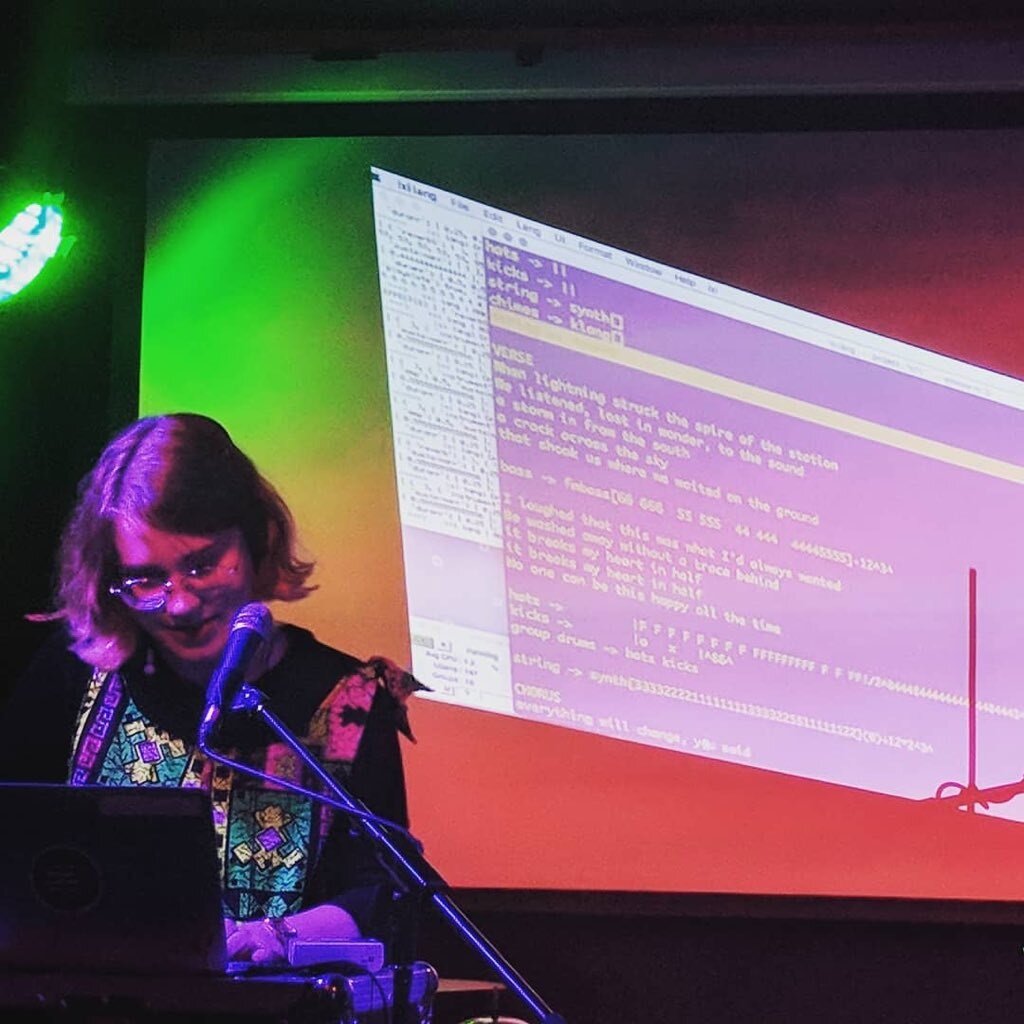Emma Winston Goldsmiths, University of London
Making music with code may seem a surprising pursuit for a PhD candidate researching creative practice and identity amongst ukulele players. In March 2016, however, I attended the ‘CHASE Practices: Situations in Art and Technology Practice’ training day at Sussex University, at which I was taught ixi lang, a programming language for the live performance of music, referred to as ‘live-coding’. I loved ixi immediately, but with my thesis consuming much of my time, did not rediscover it until two years later. Within an hour of re-opening the program, I had written a full song. Six weeks later, I played my first algorave (an event at which dance music is performed with code) and released an album, Tell Me I Can Fix This On My Own, made in ixi. I had forgotten what it felt like to be a newcomer in an unfamiliar musical world; terrifying, but thrilling. During his CHASE workshop, Thor Magnusson, ixi lang’s creator, described it as ‘the ukulele of live coding’, referring to the language’s shallow learning curve. For me, this description now holds a deeper resonance. The live-coding world has acted as a new lens through which to view the practice of my participants who often enter ukulele events doubting their ability to take part, but leave with a sense of belonging and renewed identity as a musician; my encounters with ixi lang in many ways perfectly mirrored this experience, allowing me to access a new musical mode of being.

